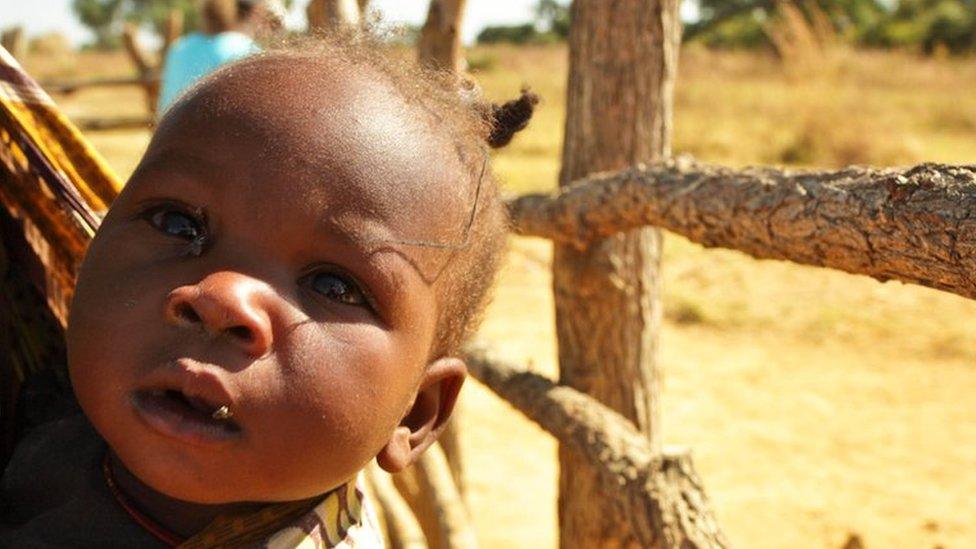Letter from Africa: Why there was an uproar over the name Prince
- Published
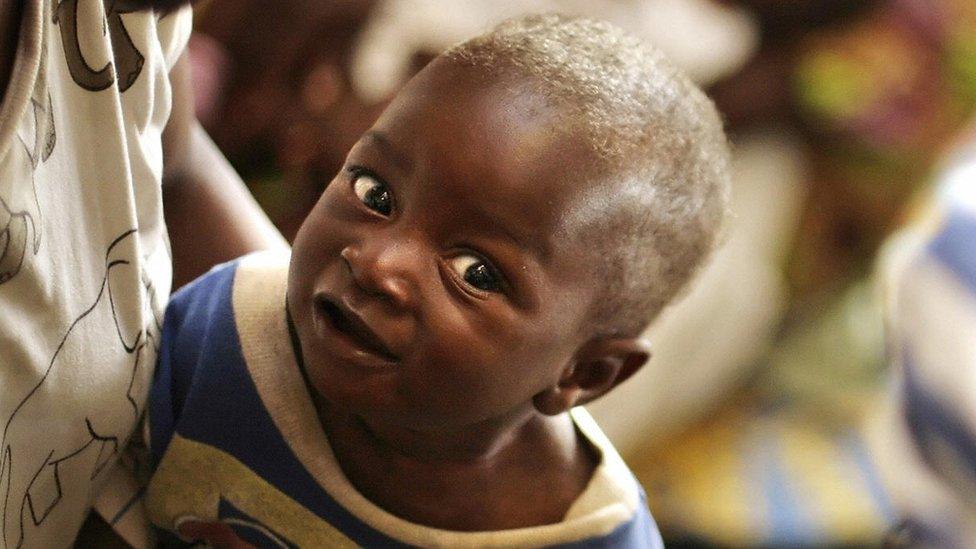
In our series of letters from African journalists, Elizabeth Ohene looks into recent reports that officials were refusing to register babies with Ghanaian names and only accepting European ones.
In Ghana, we have a thing about names and titles. It starts at birth, when there are many naming ceremonies.
The first one happens as soon as a child is born and is based on the day of the week he or she arrives.
Thus Kwadwo, Komla, Kwaku, Yaw, Kofi, Kwami and Kwasi are the names for males born on Monday, Tuesday, Wednesday, Thursday, Friday, Saturday and Sunday respectively.
The female equivalents are Adzoa, Abena, Akua, Yaa or Yawa, Afua, Ama and Akosua.
A week after the birth, on the eighth day, we hold an "outdooring" - a formal ceremony where the parents announce the child's given name.
The day name is still used and later in life, it often becomes your middle name. My middle name is Akua because I was born on a Wednesday.
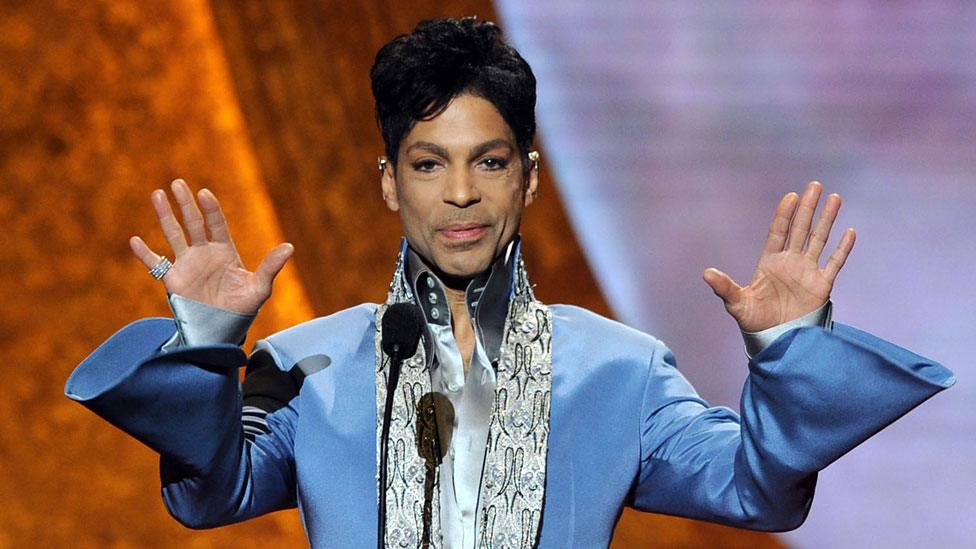
The US star's real name was Prince Rogers Nelson - this would have been banned in Ghana
For Christians, later on there will be a baptismal ceremony. In the old days, priests used to insist that a child should be given a Christian name - one that can be found in the Bible.
The biblical names given to children would be English or German, because the Bible was first brought to Ghana by people from those countries.
That is why you'll meet lots of Ghanaians called John, James and Johann.

You might also like:

Some time later, there would be another ceremony when parents go to register the child at the Births and Deaths Registry.
Judging from recent events in Ghana, it would seem that things have been coming to a head at this last naming ceremony.
The registry began refusing to register certain names that it deemed inappropriate.
This included names like Nana, Naa, Nii, Owula, Togbe, Junior and Prince - all of which are popular in Ghana.
The registry said these names were titles, not real names, and that they were intended for chiefs and royals - not ordinary children.
Nana's closest equivalent in English is Your Royal Highness. That name, from the Akan language, also exists in the Ga language as Nii for boys and Naa for girls.
The name Owula can be translated as Esquire, while the Ewe name, Togbe, literally means "grandfather" - indicating that the child has been named in honour of their elder.
The registry also rejected names where the English name came after the local language name.
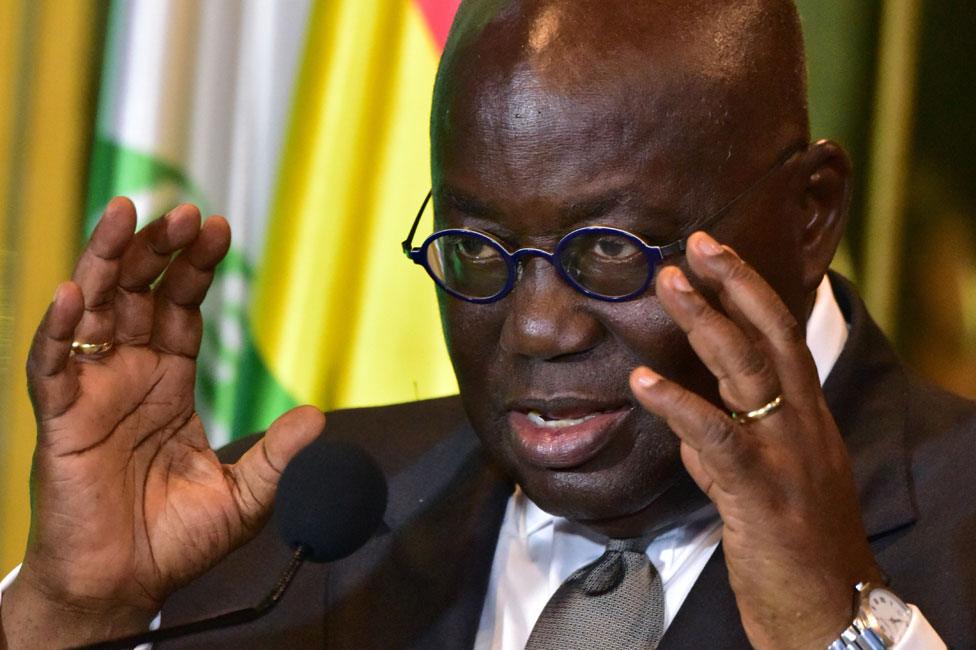
The name of Ghana's President - Nana Addo Dankwa Akufo-Addo - would not have been registered
Writs have been filed in the courts, questions have been asked in parliament and a Minister of State has had to appear in the House to answer questions on the subject.
He assured politicians and the people of Ghana that the registry would accept names that they had been refusing to register.
The minister added that parents were free to register local language names as first names, and English names as the middle names.
This does not mean that people are now free to give their children whatever names they want.
The registry will not register your child as Honourable, Excellency, or Your Highness in English - but their Ghanaian equivalents, like Nana, are fine.
Their change of heart is good news for Ghana's President Nana Addo Dankwa Akufo-Addo.
It would have been very strange if the registry had successfully argued that a new generation of Ghanaians could not be called Nana.
More Letters from Africa:
The teen rescuing street children in Nigeria
Why some Sudanese back the lecturer who beat his students
Inside Africa's WhatsApp's gated communities
- Published30 December 2016
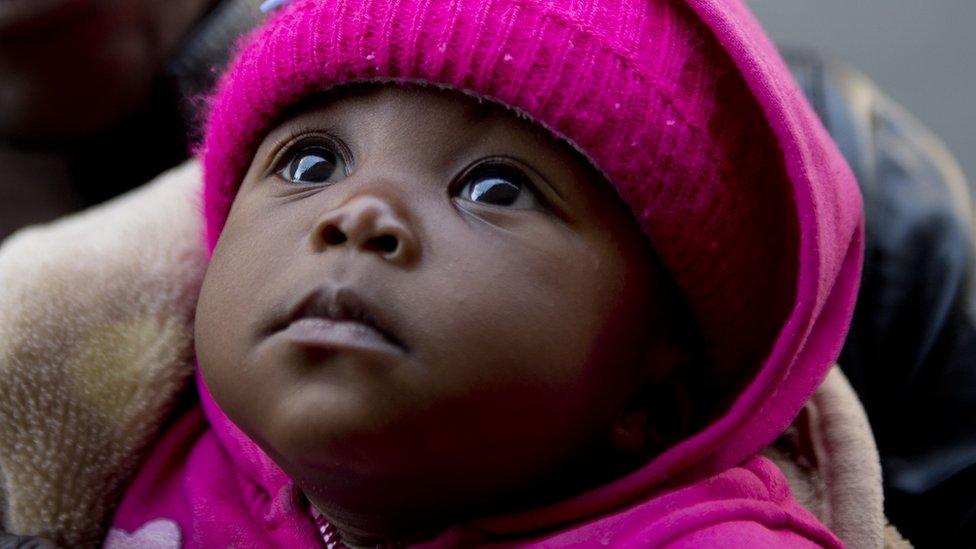
- Published5 February 2014
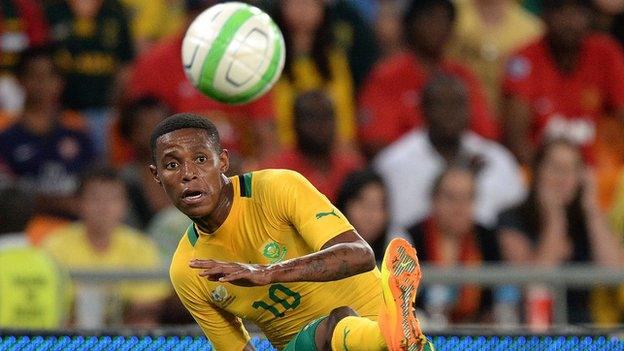
- Published26 March 2017
